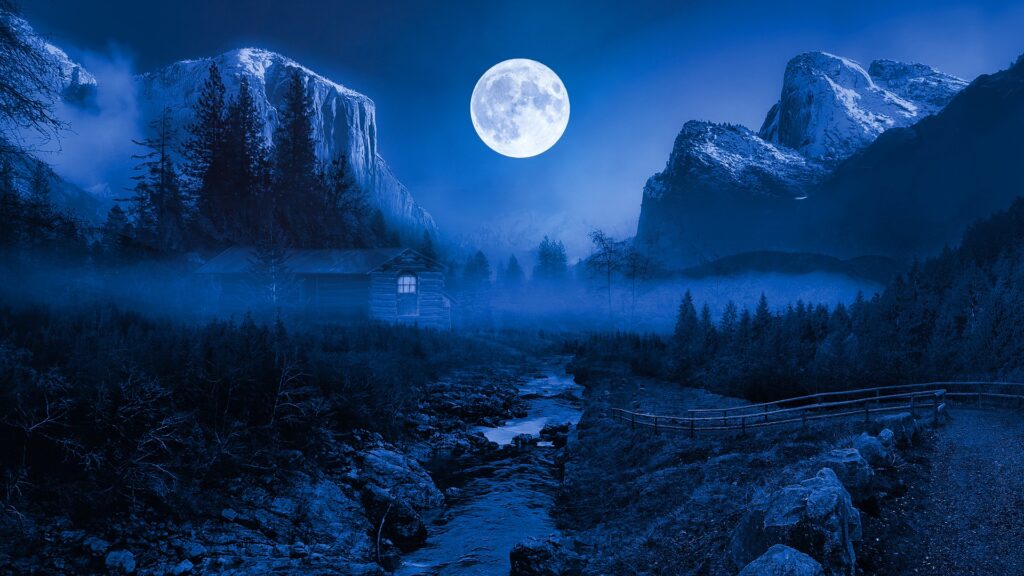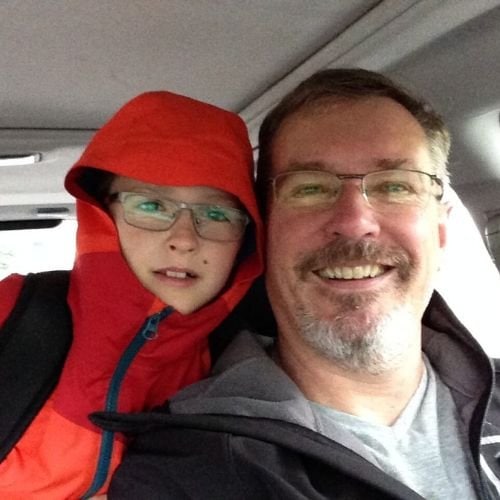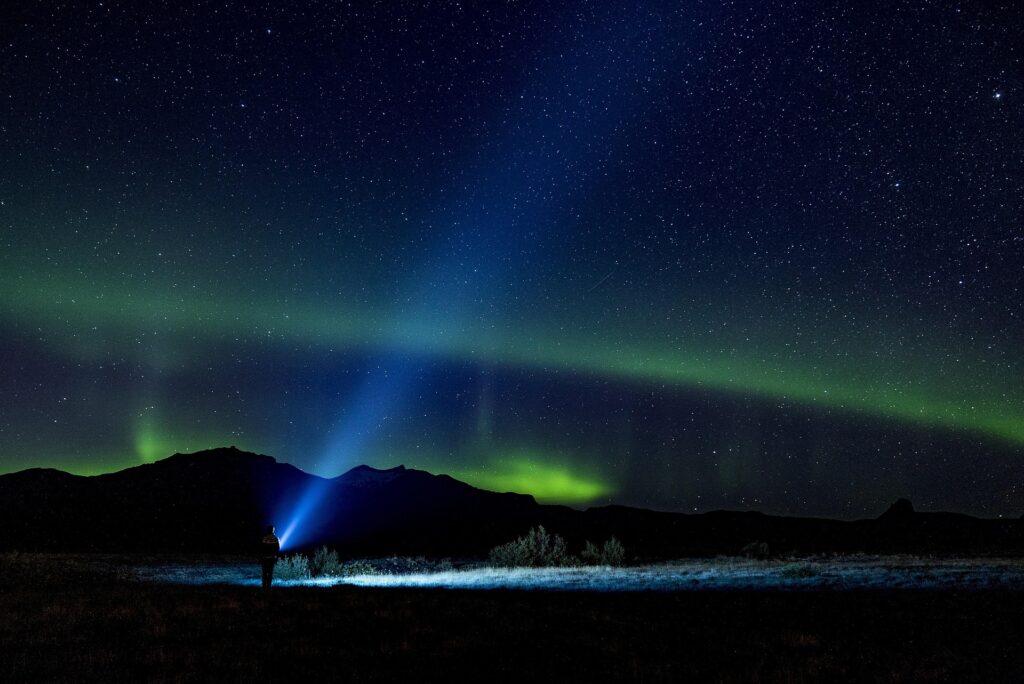We're an affiliate. We hope you love the products we recommend! Just so you know, we may collect a share of sales or other compensation from the links on this page. Thank you if you use our links, we really appreciate it!
Camping is a fun and popular summer activity, but there are some things that many campers need to learn about blue lights. Why do campers have blue lights?
Campers have blue lights for several reasons. First, blue light is known to be calming and relaxing, which can help campers fall asleep at night. Blue lights are also a form of decoration, and they also help to find a campsite after dark.
I will discuss 8 exciting facts about blue lights in this blog post.
8 Things You Need to Know About Campers and Blue Lights
Here are eight things you need to know about this popular camping accessory:
Calming Effect
Unlike white or yellow light, blue light has a calming effect on the body and mind. This is why many campers use blue lights to help them fall asleep at night.
When camping, you want to relax and enjoy the sounds of nature, not be kept up by bright lights. Blue light can help you achieve this by promoting relaxation and sleep.
Mood Booster
In addition to being calming, blue light is also known to boost your mood. So, if you’re feeling down while camping, blue light can help you feel better.
Not only will blue light make you feel more relaxed, but it can also help to improve your mood. This is because blue light increases serotonin levels in the brain, which is known to improve mood and emotional well-being.
Find Your Campsite
Another reason that campers use blue lights is to help find their campsite after dark. This is especially helpful if you’re camping in a large, sprawling campground.
With blue lights, you can quickly identify your campsite from a distance. This can save you time and energy when finding your way back to your tent at night. These blue lights produce enough light to help you see where you’re going, but they’re not so bright to disturb other campers.
Decoration
In addition to their practical uses, blue lights are famous for their decorative value. Many campers use blue lights to add a touch of personality to their campsite.
With blue lights, you can create a unique and inviting space that will make your campsite stand out from the rest. You can use blue lights to accentuate your campsite’s best features and create a welcoming atmosphere.
Blue Light Boosts Memory
One of the lesser-known benefits of blue light is that it can help to boost your memory. Studies have shown that blue light increases activity in the hippocampus, which is the part of the brain responsible for memory. Blue light may be a helpful tool if you’re looking to improve your memory while camping.
Boosts Alertness
Camping should be fun and relaxing, but there are times when you need to be alert. If you’re hiking or doing other activities that require vigilance, blue light can help to keep you sharp.
This is because blue light increases dopamine levels in the brain, which is known to improve alertness and attention. If you find yourself getting drowsy while camping, blue light can help to keep you awake and alert.
It helps Relieve Seasonal Affective Disorder (SAD)
Seasonal Affective Disorder (SAD) is a type of depression that occurs during winter. This is due to the shorter days and less sunlight during this time of year. One of the best ways to treat SAD is exposure to bright light, which is why many sufferers use light therapy.
While blue light isn’t as bright as sunlight, it can still help to relieve symptoms of SAD. This is because blue light increases serotonin levels in the brain, improving mood and alleviating depression.
It Regulates Circadian Rhythm
The circadian rhythm is the body’s natural sleep-wake cycle. This cycle is regulated by exposure to light and darkness. In the morning, sunlight helps wake you up and start your day. At night, darkness signals your body that it’s time to sleep.
Blue light can help to regulate your circadian rhythm by providing exposure to light in the evening. This can help you to fall asleep and stay asleep through the night.
How to Use Blue Lights
Now that you know all about the benefits of blue light, you might be wondering how to use it. Here are a few ideas:
String Blue Lights Around Your Campsite
You can use blue lights to add a touch of personality to your campsite. String them around your tent or hang them from trees to create a unique and inviting space.
Use Blue Lights Inside Your Tent
If you’re camping in a place with no electricity, blue lights can be a helpful way to light your tent at night. You can either string them up around the perimeter of your tent or use them as a flashlight.
Pack Blue Lights for Emergency Situations
Blue lights can be a helpful tool in emergency situations. If you find yourself lost or stranded, blue lights can help you signal for help. You can also use them to identify your campsite from a distance.
Wear a Headlamp with a Blue Light Setting
When moving around your campsite at night, it’s essential to have a light source. A headlamp with a blue light setting can be a great way to see where you’re going without disturbing other campers.
Hang Blue Lights in Your Treehouse or Camping Cabin
If you have a treehouse or camping cabin, blue lights can help to make it feel more like home. String them up around the perimeter or use them as accent lighting.

Cons of Using Blue Lights When Camping
While blue lights offer several benefits, there are also some potential downsides.
They Attract Bugs
This is one of the main complaints about blue lights. While they may help to keep you awake at night, they can also attract bugs to your campsite.
The last thing you want is to be kept up all night by buzzing insects. If you’re particularly sensitive to bug bites, you may want to avoid using blue lights.
If you’re using blue lights, keep them away from areas where you’ll be spending time. Invest in a bug zapper or mosquito coils to help keep the pests at bay.
They Can Disturb Other Campers
Some campers find blue lights to be disruptive and intrusive. If you’re using them at night, be considerate of other campers and keep them dimmed or turned off when not in use.
They May Not Be Allowed in Some Campgrounds
While blue lights are generally allowed in campgrounds, there are some exceptions. Some campgrounds have rules against using any light after dark.
Before using blue lights at your campsite, check with the campground manager. They can tell you if there are any restrictions in place.
Final Thoughts
Blue lights are a popular camping accessory for a reason. They offer several benefits, including improved sleep, increased serotonin levels, and regulation of the circadian rhythm.
While blue lights have potential downsides, such as attracting bugs and disturbing other campers, these can be avoided with proper use. This article has helped you better understand the benefits and risks of using blue lights when camping.

We’re passionate about getting the most from your car when it comes to going on adventures and road trips. When you take one of these trips you often need more room in your car than you usually would. This is when we come in, to help you find the best roof tent for your car and needs.

